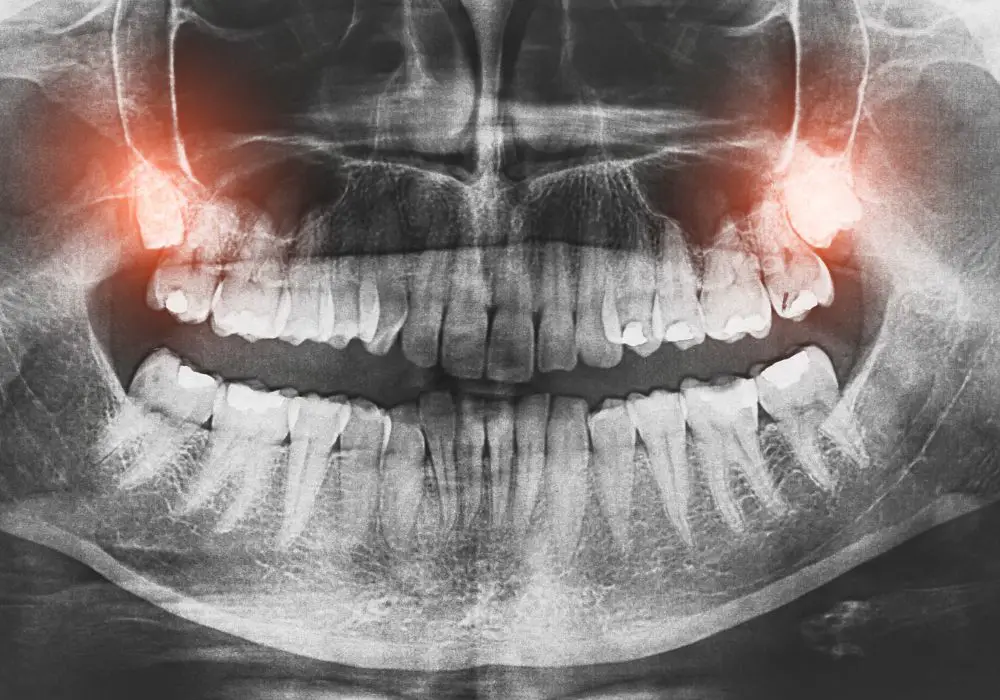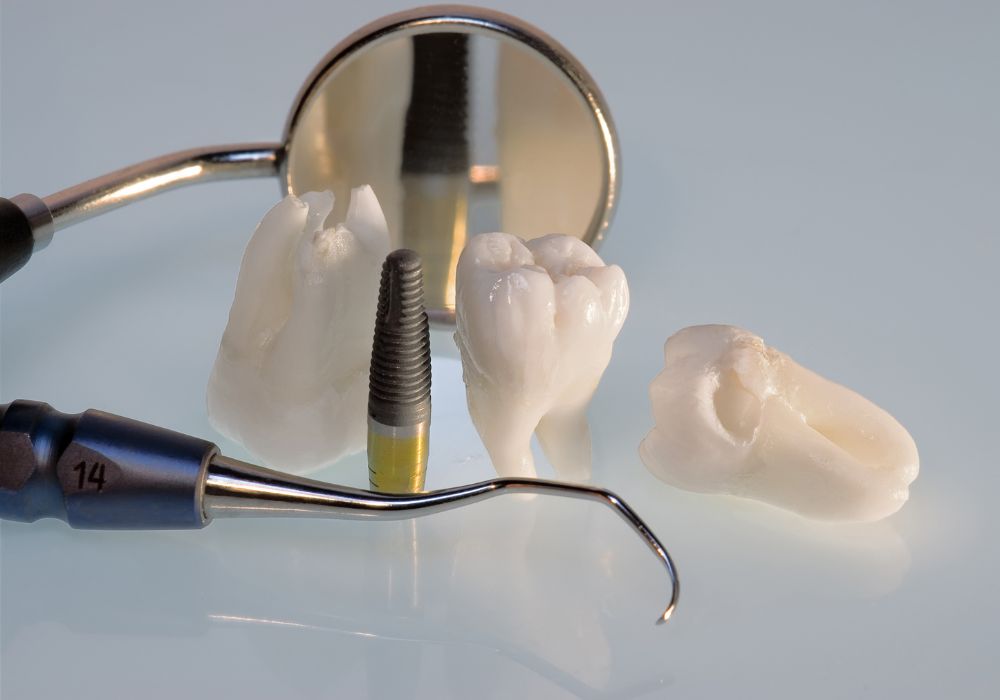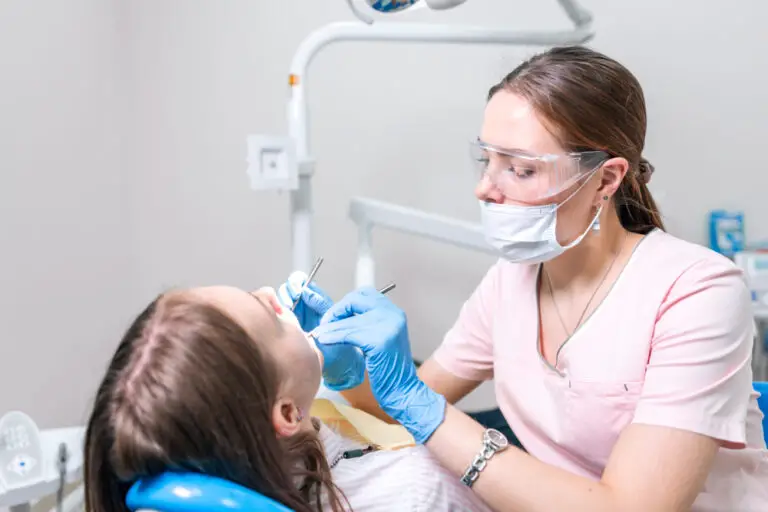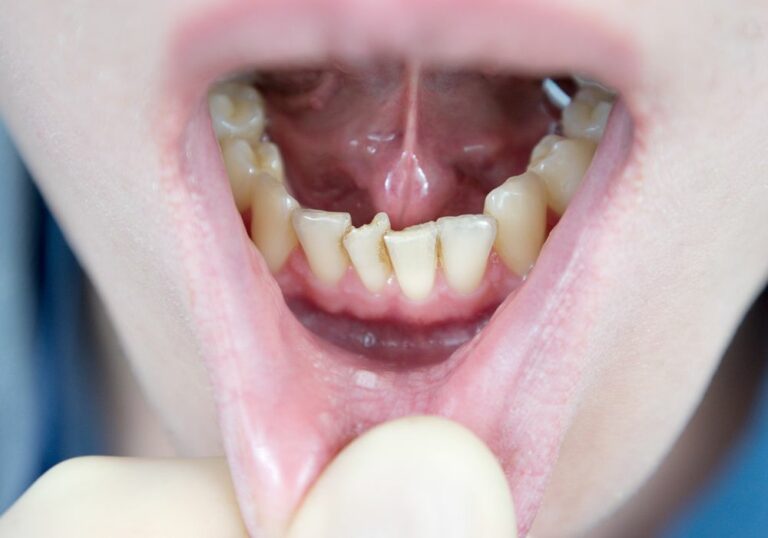Wisdom teeth are the third molars located at the back of your mouth. They usually emerge between the ages of 17 and 25, but not everyone develops them. While some people may have enough room in their mouth to accommodate these teeth, most people do not. Keeping your wisdom teeth may lead to a variety of complications and health risks.
Anatomy plays a significant role in determining whether or not wisdom teeth need to be extracted. If the teeth are impacted, meaning they are unable to emerge fully, they may cause pain, swelling, and infection. Additionally, impacted teeth can cause damage to the surrounding teeth and bones, leading to further complications. In this article, we will explore the potential complications of keeping wisdom teeth and why it is generally recommended to have them extracted.
Key Takeaways
- Keeping wisdom teeth that are impacted or do not have enough room can lead to pain, swelling, infection, and damage to the surrounding teeth and bones.
- The anatomy of your mouth plays a significant role in determining whether or not wisdom teeth need to be extracted.
- While there is some debate about whether or not to extract wisdom teeth, most dentists recommend extraction to prevent potential complications and health risks.
Anatomy of Wisdom Teeth

Wisdom teeth, also known as third molars, are the last set of teeth to develop in the human mouth. They typically emerge between the ages of 17 and 25, and most people have four wisdom teeth, one in each corner of the mouth.
Wisdom teeth are similar in structure to other teeth, with a crown, neck, and root. However, they can vary in size, shape, and number. Some people may have fewer than four wisdom teeth, while others may have extra teeth.
The roots of wisdom teeth are often longer and more curved than those of other teeth, which can make them difficult to remove. Additionally, wisdom teeth are located at the back of the mouth, which can make them harder to clean and more susceptible to decay and gum disease.
In some cases, wisdom teeth may become impacted, meaning they are unable to fully emerge from the gums. This can lead to a variety of problems, including infection, pain, and damage to adjacent teeth. Impacted wisdom teeth may also develop cysts or tumors, which can cause further complications.
Overall, while wisdom teeth are a natural part of the human anatomy, they can pose significant health risks if they are not properly managed. In many cases, it is recommended that wisdom teeth be removed to prevent potential complications.
Potential Complications of Keeping Wisdom Teeth
Impacted Wisdom Teeth
Impacted wisdom teeth can cause a range of problems. These teeth may grow in at an angle, pushing against other teeth and causing crowding, shifting, and misalignment. They can also cause pain and swelling, as well as infections and abscesses. In some cases, impacted wisdom teeth can even cause damage to the jawbone.
Oral Hygiene Challenges
Wisdom teeth are located at the back of the mouth, making them difficult to reach with a toothbrush and floss. This can make it challenging to keep these teeth clean and free from plaque and bacteria. As a result, wisdom teeth are more prone to decay and gum disease than other teeth.
Damage to Adjacent Teeth
When wisdom teeth grow in at an angle, they can push against adjacent teeth, causing damage to these teeth and increasing the risk of decay and gum disease. In some cases, impacted wisdom teeth can even cause damage to the roots of adjacent teeth, which can lead to the need for expensive and invasive dental procedures.
In conclusion, keeping your wisdom teeth can lead to a range of potential complications, including impacted teeth, oral hygiene challenges, and damage to adjacent teeth. If you are experiencing any of these issues, it is essential to seek the advice of a qualified dental professional.
Health Risks Associated with Wisdom Teeth

Infections
Wisdom teeth can cause infections in the surrounding gums and teeth. This is because they are difficult to clean, and food particles and bacteria can get trapped between the teeth. Infections can lead to swelling, pain, and even difficulty opening your mouth. If left untreated, infections can spread to other parts of the body and cause serious health problems.
Cysts and Tumors
Wisdom teeth can also cause cysts and tumors. These are fluid-filled sacs that form around the tooth and can cause damage to the surrounding bone and teeth. Cysts and tumors can also be painful and can lead to infection.
Gum Disease
Wisdom teeth can also contribute to gum disease. This is because they are difficult to clean, and bacteria can build up in the pockets between the teeth and gums. Gum disease can cause inflammation, bleeding, and even tooth loss if left untreated.
It is important to have your wisdom teeth evaluated by a dentist or oral surgeon to determine if they need to be removed. Even if your wisdom teeth are not causing any problems now, they may cause problems in the future. Regular dental check-ups can help identify any potential issues before they become serious health problems.
The Debate: To Extract or Not to Extract
Pros of Extraction
There are several reasons why dentists recommend the extraction of wisdom teeth:
- Preventive measure: Even if your wisdom teeth are not causing any problems now, they could in the future. Removing them before they cause issues can prevent more complicated and painful procedures later on.
- Crowding: Wisdom teeth can push other teeth out of alignment, causing crowding and leading to orthodontic problems.
- Decay and gum disease: Wisdom teeth are difficult to clean, which can lead to decay and gum disease. In some cases, cysts or tumors can also develop around impacted teeth.
Cons of Extraction
Despite the benefits of extraction, there are also some potential downsides:
- Surgical risks: Like any surgery, there are risks associated with wisdom tooth extraction, including infection, bleeding, and nerve damage.
- Recovery time: Recovery from wisdom tooth extraction can take several days, during which time you may experience pain, swelling, and difficulty eating.
- Cost: Wisdom tooth extraction can be expensive, especially if you don’t have dental insurance.
Ultimately, the decision to extract or not to extract your wisdom teeth should be made on a case-by-case basis with your dentist. They can evaluate your individual situation and determine the best course of action for your oral health.
Wisdom Teeth Extraction Process

Pre-Surgery Assessment
Before the surgery, the dentist will conduct a thorough examination of your mouth, including X-rays. They will also discuss your medical history and any medications you are taking. This assessment will help determine if you are a good candidate for wisdom teeth extraction.
Surgical Procedure
On the day of the surgery, the dentist will administer anesthesia to numb the area around the tooth. Depending on the complexity of the procedure, the dentist may use local anesthesia, sedation, or general anesthesia.
Once you are numb, the dentist will make an incision in your gum tissue to access the tooth. They may also remove any bone that is blocking the tooth. The dentist will then remove the tooth and clean the area to ensure that no debris is left behind.
Finally, the dentist will close the incision with stitches and place gauze over the area to help stop any bleeding.
Post-Surgery Care
After the surgery, you will need to take some time to rest and recover. The dentist will provide you with instructions on how to care for the area and manage any pain or discomfort.
Here are some tips to help with your recovery:
- Apply an ice pack to your cheek for 20 minutes at a time to help reduce swelling.
- Avoid using straws, smoking, or spitting for at least 24 hours after the surgery, as these activities can dislodge the blood clot and delay healing.
- Eat soft foods and drink plenty of fluids for the first few days after the surgery.
- Brush your teeth gently, avoiding the area where the tooth was removed.
- Take any pain medication as prescribed by the dentist.
By following these instructions and taking good care of the area, you can help ensure a smooth and successful recovery.
Frequently Asked Questions
What happens if you don’t remove wisdom teeth?
If your wisdom teeth are healthy, properly positioned, and don’t cause any problems, you may not need to remove them. However, if they are impacted, meaning they don’t have enough room to emerge or grow normally, they can cause pain, infection, and other problems. Impacted wisdom teeth can also damage adjacent teeth, cause cysts or tumors, and lead to gum disease.
Can you keep your wisdom teeth after removal?
No, once your wisdom teeth are removed, they cannot be put back in. However, you can keep them as a souvenir or for educational purposes if you wish.
Is wisdom teeth removal painful?
Wisdom teeth removal can be uncomfortable, but it is usually not painful. Your dentist or oral surgeon will use local anesthesia, sedation, or general anesthesia to numb the area and make you comfortable during the procedure. You may experience some swelling, pain, and bleeding after the surgery, but these symptoms can be managed with pain relievers and proper care.
Should I get 2 or 4 wisdom teeth removed?
It depends on your individual situation. Some people have all four wisdom teeth, while others have only one or two. Your dentist or oral surgeon will evaluate your teeth and recommend the best course of action. In some cases, it may be necessary to remove all four wisdom teeth to prevent future problems.
Do they break your jaw to remove wisdom teeth?
No, breaking the jaw to remove wisdom teeth is a myth. Modern techniques and instruments allow dentists and oral surgeons to remove wisdom teeth safely and comfortably without breaking the jaw.
Why experts now say not to remove your wisdom teeth?
Some experts believe that if your wisdom teeth are healthy, properly positioned, and don’t cause any problems, there may be no need to remove them. However, this is not always the case, and each situation is unique. It is important to consult with your dentist or oral surgeon to determine the best course of action for your individual needs.







